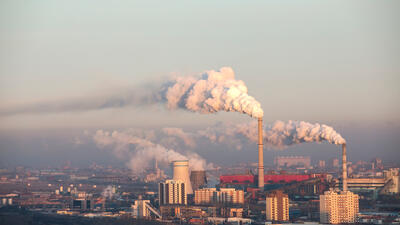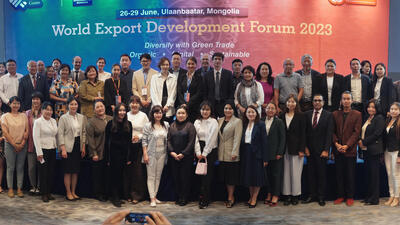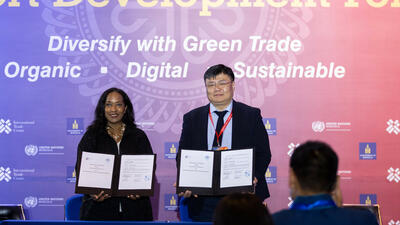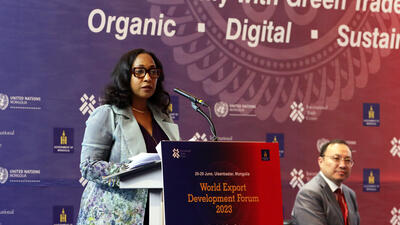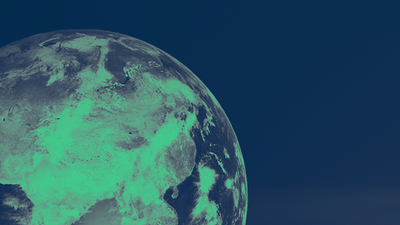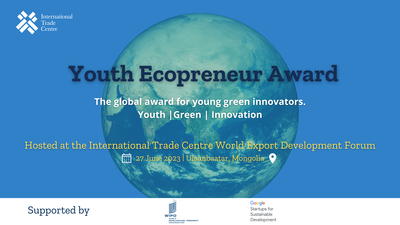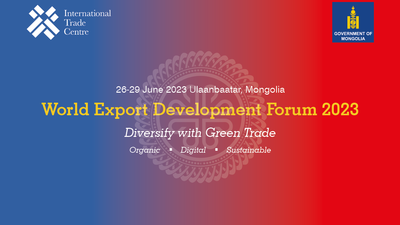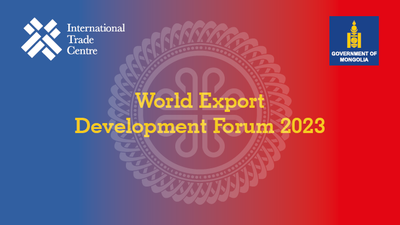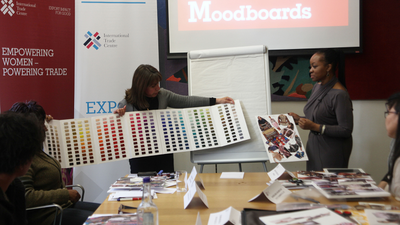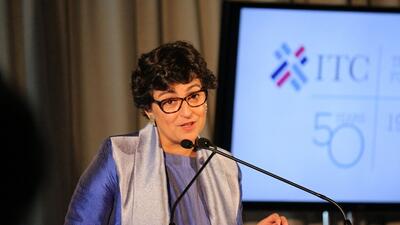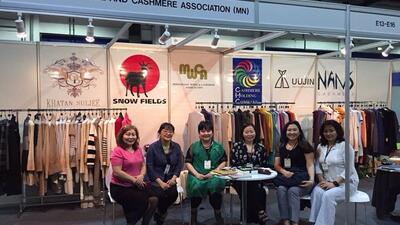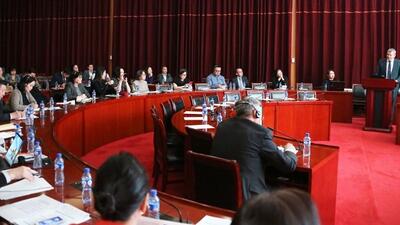
A breath of clean air for Mongolia
Imagine a life without clean air, where even indoors you cannot escape the fumes that come from burning coal. Difficult, isn’t it? This is the reality for many Mongolians living in one of the coldest, most polluted cities in the world, Ulaanbaatar.
However, thanks to the innovations of young, local, and, most importantly, passionate ecopreneurs such as Oyungerel Munkhbat, the capital’s population is experiencing better conditions.
Read about this young woman’s journey to founding Airee, a green business solution that not only gives families cleaner oxygen to breathe but also reduces microplastics pollution by using 100% biodegradable wool filters in air purifiers.
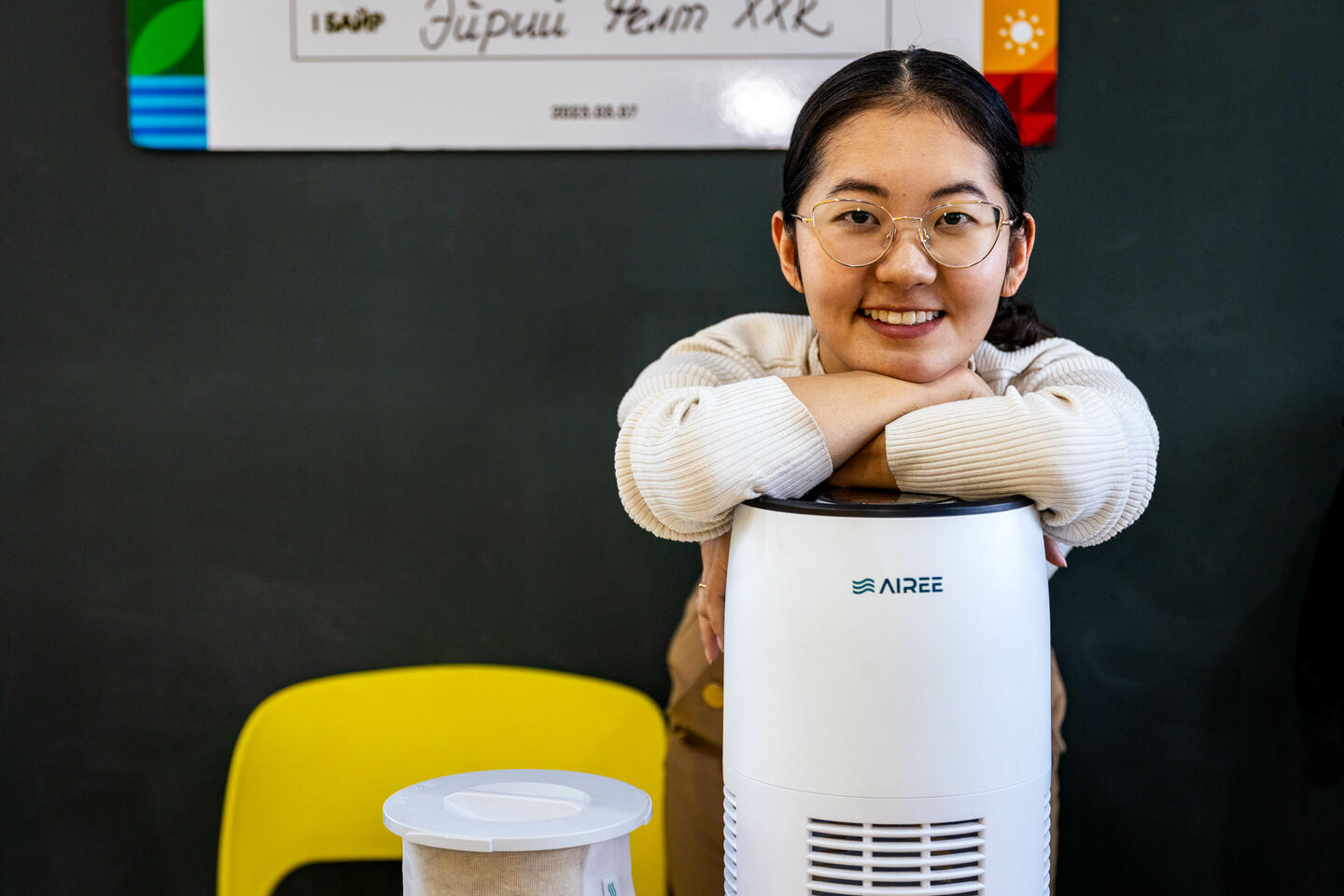
When you picture Mongolia, you might imagine majestic mountains, and endless, empty plains explored only by a handful of locals on horses, or nomads herding sheep. Ulaanbaatar, the capital of Mongolia and its growing Ger-districts, may not be what comes to mind.
This is where twenty-six-year-old Oyungerel grew up. She was raised in a district she describes as slum-like, where Gers (portable tents traditionally used by nomads on the Mongolian Plateau) shape the living conditions of over half of Ulaanbaatar’s city population.
Since the 1990s, Ulaanbaatar has experienced unprecedented urbanization following the collapse of the Soviet Union. A lack in housing has led to the expansion of informal settlements, resulting in urban challenges ranging from limited public services to waterborne diseases and air pollution.
The latter issue has been on Oyungerel’s mind ever since she was a little girl.
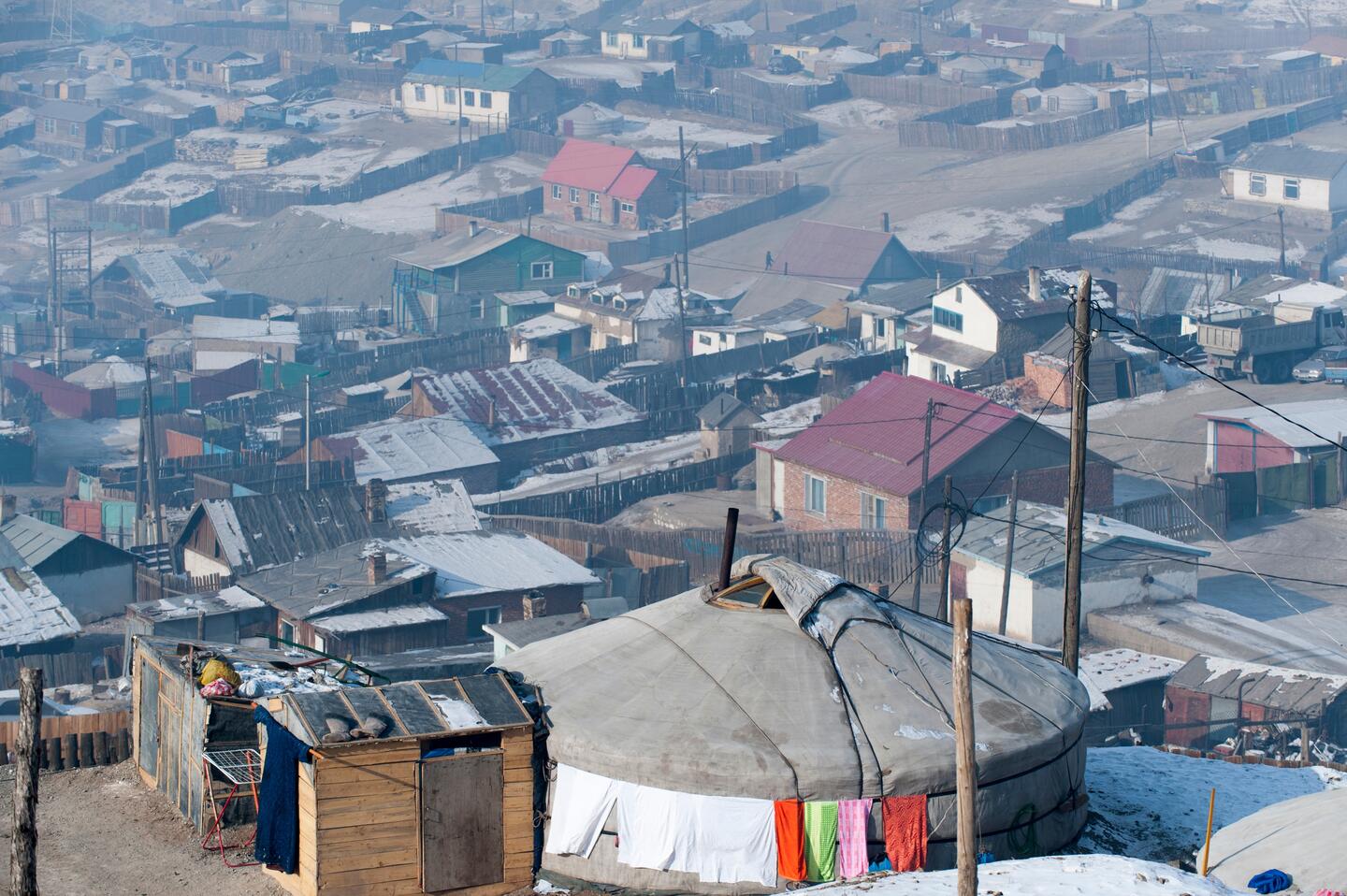
Mongolia not only has to contend with housing challenges, but infamous temperatures too: the average annual temperature in this landlocked country stands at -1.3° Celsius.
“People burn coal directly in the stove to keep warm,” explains Oyungerel. “And the air pollution is increasing since 2004, as more and more nomads travel to the city due to climate change.”
Mongolia has experienced a 2.1° Celsius increase in average air temperatures over the past 70 years, making it one of the countries most affected by climate change. This changing climate has had adverse effects on vital sectors such as agriculture, particularly livestock, on which the nomads depend. As of 2021, almost 80% of the land is degraded due to overgrazing and climate change.
Additionally, the frequency and magnitude of natural hazards such as harsh winters, drought, snowstorms, and dust storms are increasing.
Comprising nearly 30% of the population, nomadic herders are extremely vulnerable to these impacts. “This is why nomads are coming to Ulaanbaatar, creating districts outside of the city.”
A city which is one of the most polluted in the world. Listening to Oyungerel, it almost feels as if there is no escape: burning more coal adds to climate change, which then creates extreme winters, which contribute to nomads losing their livelihoods and moving to the city, where they burn more coal, and breathe polluted air, and so forth.
“I have lived in the Ger district until I was 12. I cannot remember a winter without air pollution. You were breathing soot as if you worked at a coal mine. It made me angry. It felt like no one cared about people suffering from lack of clean air.”
Video
Instead of pursuing a degree in anthropology as she had originally planned, Oyungerel decided to study environmental science.
Along with learning more about air pollution, the young student set out to work as a journalist at the UB Post and received public attention with her awareness-raising initiatives.
“Many felt powerless because they blamed the government for their situation.
However, we tried to give back the power to people – we developed call-to-action pages on Facebook and a website for individuals to fight air pollution.”
After graduation, Oyungerel tried her luck at the Mongolian Sustainable Finance Association, where she led a project on energy efficiency mortgages in collaboration with GIZ. The Association has been working on building a green fund, the Mongolia Green Finance Corporation, to finance energy-efficiency activities for Ger-district households and industries; however, this is yet to materialize.
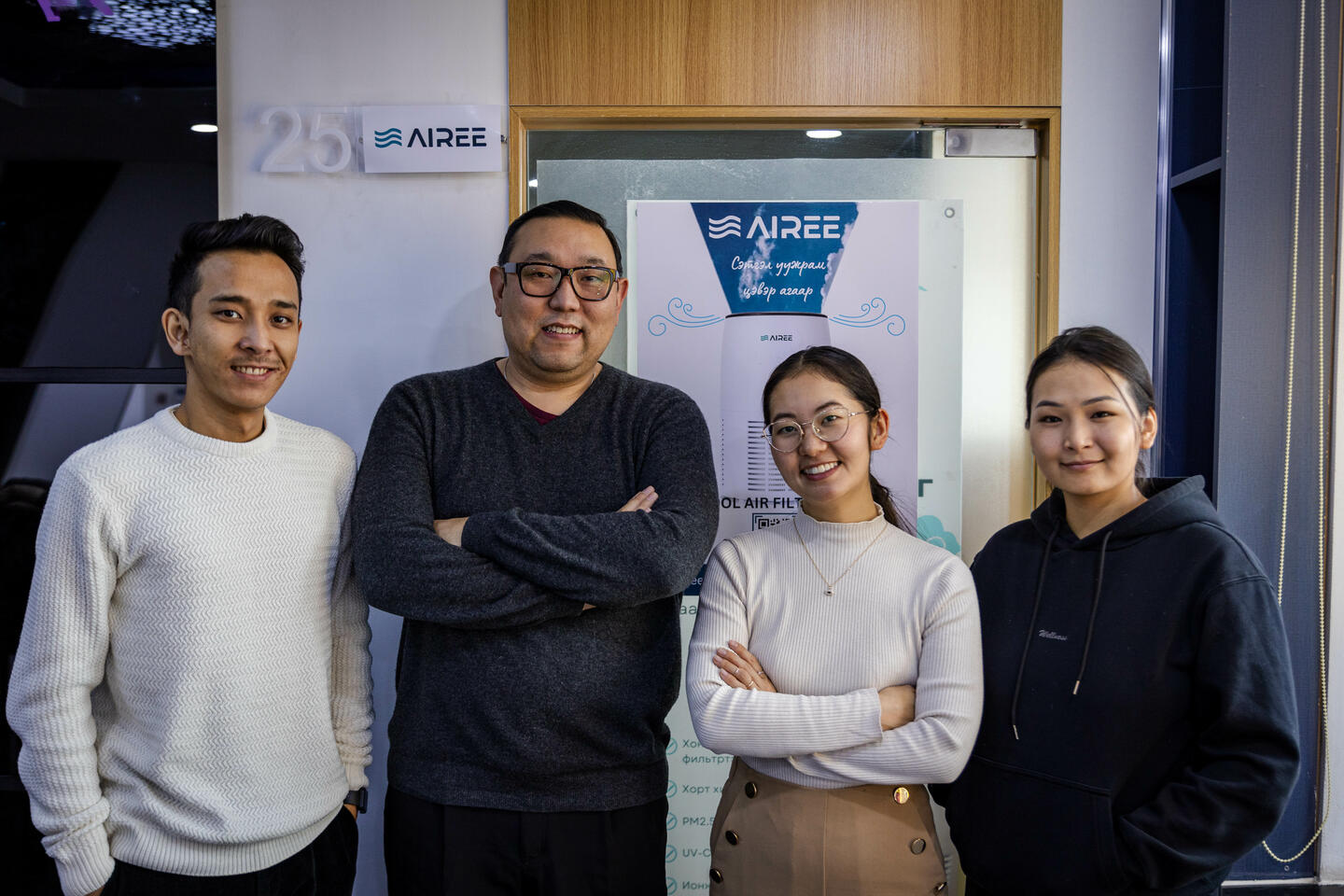
Three years into the job, Batmunkh, Oyungerel’s friend and now co-founder of Airee, had the idea of building an oxygen-generator that could improve inadequate ventilation systems. Being a biotechnologist, Batmunkh convinced his friend to build an air purifying system.
“We were thinking about ways to provide the most optimal indoor air and started with air purifiers. We found that most filters are synthetic and not recyclable.”
Having an ecofriendly mind-set, these friends decided to approach their project sustainably.
They learned from scientific papers that wool fibres remove volatile organic compounds and toxic particles from atmospheric air pollution, pollens, or bacteria, and in addition biodegrade naturally, compared to synthetic fibres.
The 23-year-olds started experimenting with different wool materials to make filters, and when they succeeded, ordered 300 air purifier devices from China without filters, supporting their company Airee with joint savings of $30,000.
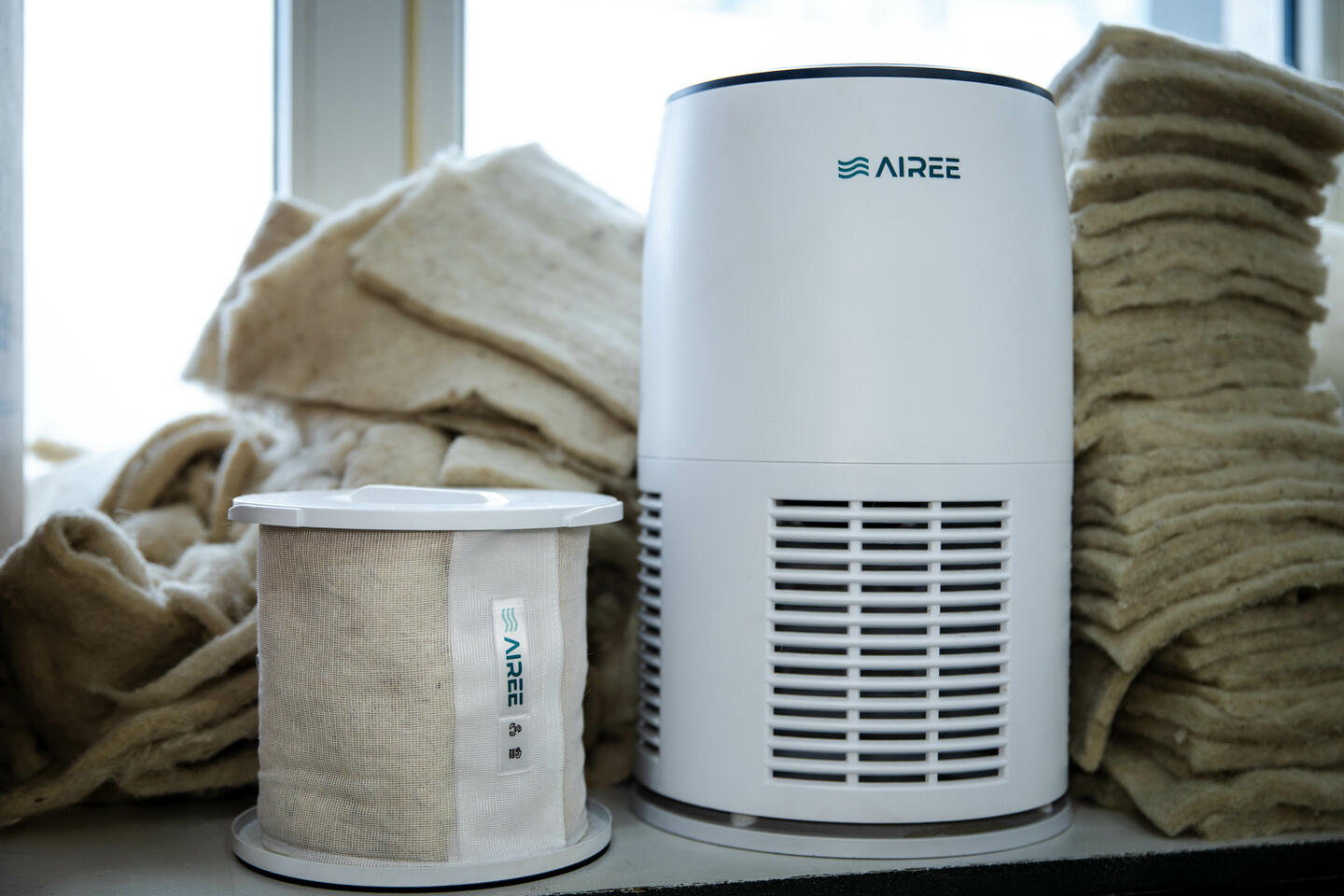
It was September 2019 when the two entrepreneurs put their order in. Two weeks later the border to China closed due to COVID-19. As air purifiers are mostly used in winter, the delayed arrival of the devices in May 2020 meant more time for verifying the efficiency of their filter prototype.
“We sent our filters to a Korean Lab to check how well they filtered particulate matter, or PM. They measured PM 0.3, much better than what we could have hoped for, filtering harmful particles that are only 0.3 micrometres in diameters, with an efficiency of 70%.”
Their technology for producing these special nature-based filters required an innovative processing methodology, which has been patented by now in utility model, design, and trademark, and is pending a technical patent.
Although they sold all 300 devices, the founders cannot yet count on a stable cashflow. The road from R&D to production is pricey and finding impact-based and value-based investors is hard when you’re starting out in Mongolia, according to Oyungerel.
“In January we landed an investor through Shark Tank, with $180,000, and are currently closing the terms. We want to build a production facility and sell our materials to filter manufacturers.”
Multiple manufacturers have so far shown interest in biodegradable materials. With the business-to-business approach, Oyungerel hopes to attract more investors and is looking forward to signing potential deals with buyers from Viet Nam, Türkiye and Germany.
However, improving the situation of her home country is at the heart of Oyungerel’s mission. There is still no buyer in Mongolia and air filters remain costly.
“During COVID, it cost up to $200 to replace an air filter for an air purifier device. We need to make these air purifiers available for Mongolians at a low price, so they can afford to have clean air.” Airee is currently the cheapest product with that technology on the market.
At the end of our talk, Oyungerel confides that she wished urbanization could be done differently.
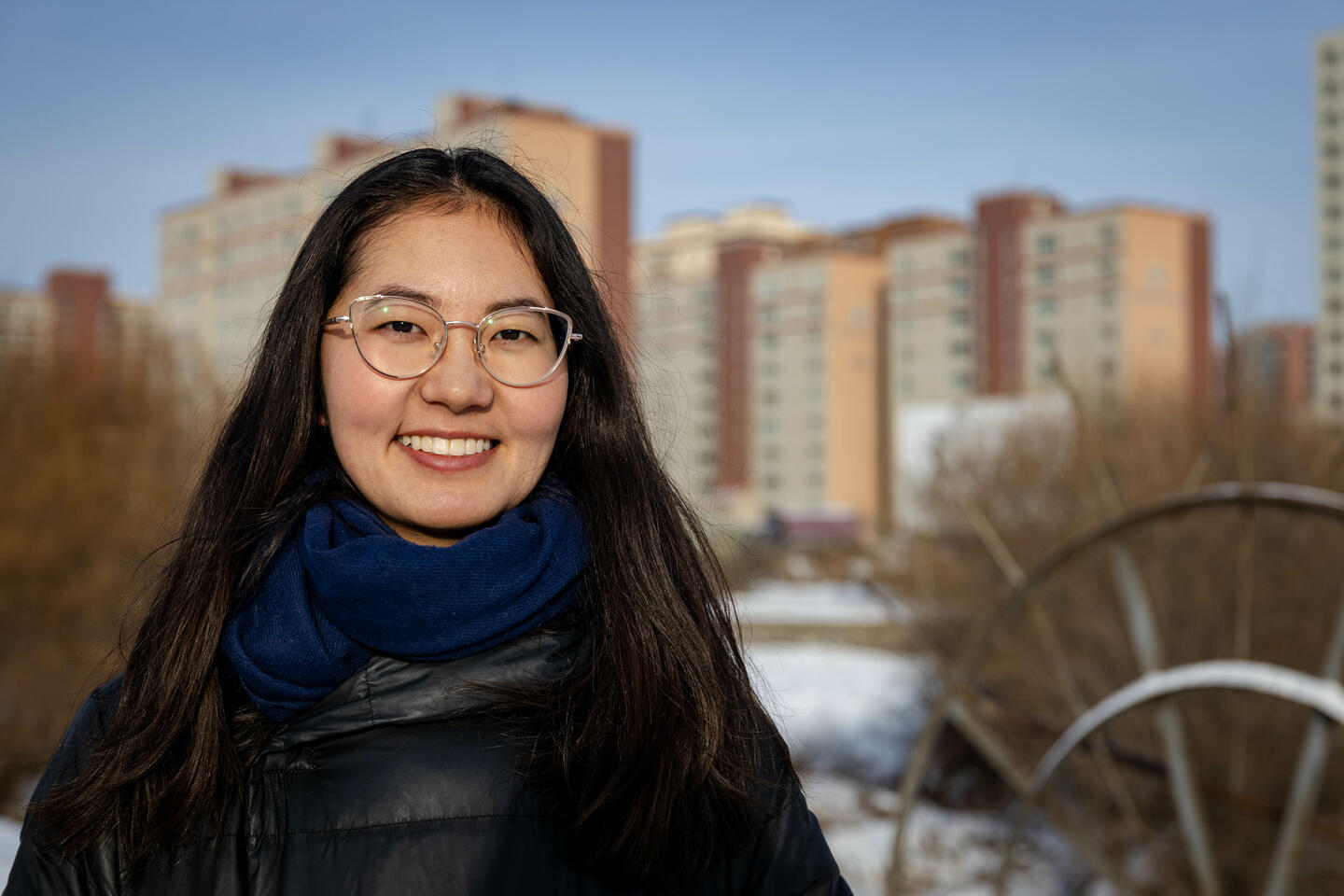
By winning the Youth Ecopreneur Award in the category of green business solutions, the Mongolian company took home $5,000 in seed funding and will receive capacity building support to scale up their businesses. The prize packages are provided by the International Trade Centre, the G20 Global Land Initiative of the United Nations Convention to Combat Desertification, the World Intellectual Property Organization, Google's Startups for Sustainable Development programme, and the multinational law firm Sidley Austin, which will help Oyungerel and her co-founder in scaling up their business.





